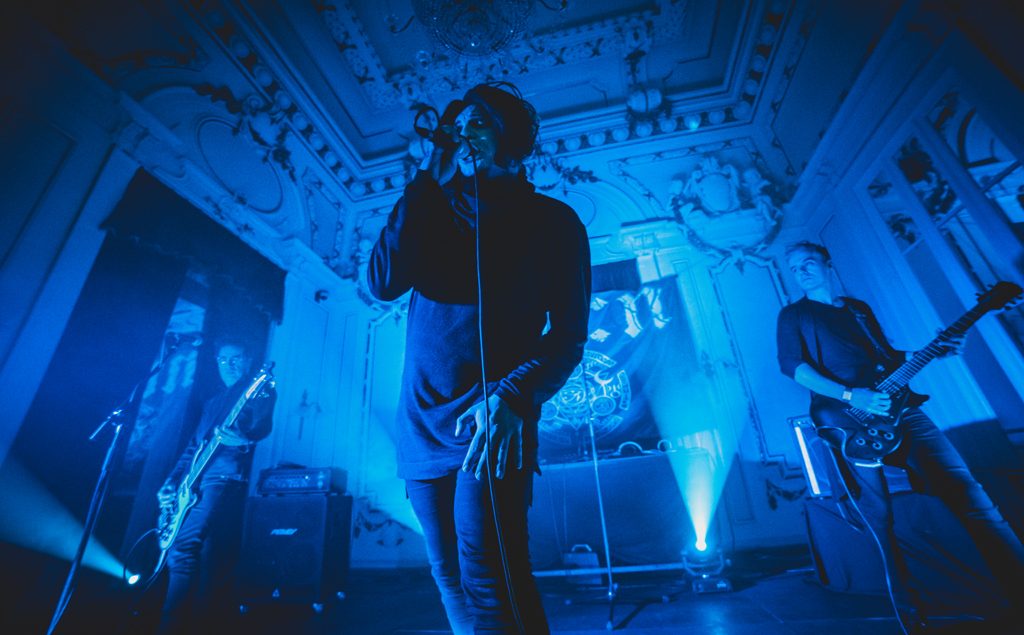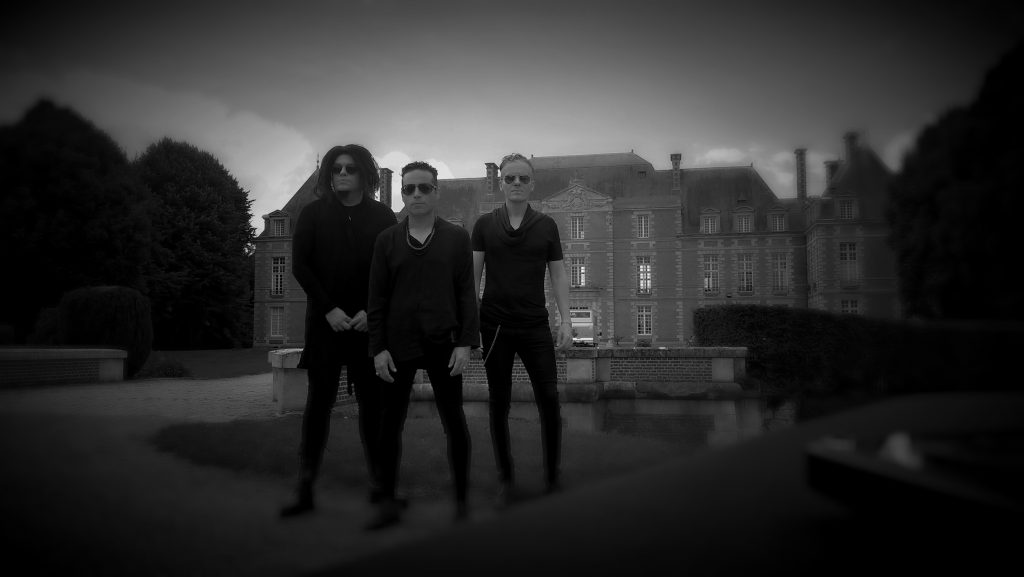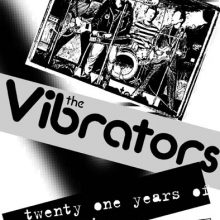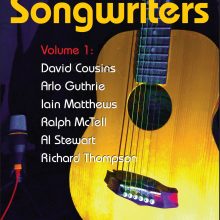Portugal’s NU:N: “We’re not just a dark rock band, we’re a dark humorous one too”
Nick Awde grabs a quick Q&A with NU:N backstage…
Alhambra Live Magazine #014
Support independent writing, buy me a coffee at buymeacoffee.com/nickawde
Bandcamp: nu-n.bandcamp.com
NU:N are Francisco Vaudeville (bass), Pedro Eternal (guitar) and Tarannis M. (vocals, synths)
The band was interviewed at Alhambra Live’s goth festival Bats in the Attic 2022
ALHAMBRA LIVE is one of the biggest grassroots music venues in the North West. Based in Morecambe on the sea Promenade, its adaptable spaces (and unique Lake District views) make it a vibrant hub for all-dayers and weekend festivals (Goth, Mod, Ska, Northern Soul…). It is also a home and hub for gothic music with Corrosion club night and the CorrosionFest & Bats in the Attic festivals. For more info, contact Fiona +44 (0)7771 200 873 / fiona@alhambralive.com
— Alhambra Live’s next goth festival is Bats in the Attic, September 8-9
Nick Awde: Where are you based in Portugal?
Tarannis M: We’re all from the Porto area.
Pedro Eternal: We used to have a good number goth rock bands in the area there but now there are less. We now have more metal and alternative bands and also an underground scene which is is getting bigger now.
Nick: So with music in Portugal it’s better to be talking not about goth specifically but about underground?
Pedro: Definitely. There’s more more stuff in underground than in mainstream – lots of bands, but many of them are more into metal. Some are goth metal but not the typical goth that you would expect.
Nick: Did you all come into the band sharing the same musical directions or were they different?
ALL: [laugh] Quite different!
Francisco Vaudeville: I was in a goth rock band before we started doing NU:N.
Pedro: I listened to stoner rock, metal, art rock, everything really – and goth rock as well. We all met in Porto underground clubs with a good vibe where a lot of alternative bands played, really underground stuff, and the three of us decided to do something—
Tarannis: —just for fun—
Pedro: —and the sound was goth rock without us trying. It was natural, and from that we started to develop our own sound.
Nick: Where does the band’s name come from?
Tarannis: It’s pronounced like the English ‘nun’ or ‘none’. It means ‘waters of chaos’, the primeval waters in Ancient Egypt that created all the gods.
Pedro: Cosmic fluid as well, so it is also universal cosmic semen.
Tarannis: The colon in the spelling is because when people see ‘N-U-N’ they think it’s a ‘nun’. They write it like that because in Ancient Egypt the ‘u’ was a long vowel.
Nick: So what what does goth mean in Portugal at the moment?
Francisco: I can’t answer that question, because I can’t tell you exactly what goth is, although I have my own ideas. You probably need to ask the others!
Pedro: I think everyone sees or hears our music in a different way. Some people say no that’s not goth, other people think it is. That’s okay because people are always labelling stuff
Nick: Is it easier in Porto to be a recording band or one that plays live?
Francisco: It’s a combination of the two. We play live but we tend to do more shows outside of Portugal than in our country. We have our own recording studio and when the tracks are ready, we go to Vulcanalia Studios where we finish everything. But we like to play live, that’s the best part.
Tarannis: In fact we don’t play all of the concerts that are offered to us in Portugal because many of them are not right for our music. But we can do more of the concerts abroad we get offered because they are usually right for our sound.
Francisco: Playing abroad is very important to us because obviously it gets the band’s name more known, that’s the main thing, and the chance to meet new audiences through great festivals like Bats in the Attic here in Morecambe.
Tarannis: You see, in our own country we very much feel that we are restricted on the cultural side. Portugal can sometimes give you the feeling that it’s small-minded, for example you can be a great band but if you only play in Portugal then you aren’t seen as being good enough. But if you’re recognised outside the country then you are seen as having something to bring back. That’s so typical of attitudes here.
Pedro: It’s not only in Portugal because obviously you find that attitude in lots of other countries – I think Spain is a similar example of people thinking this way about bands.
Tarannis: But it’s clear that English and German bands have more support from their own countries.
Pedro: A big part of that is because they have more festivals which give more exposure to bands.
Francisco: We’re lucky though in Portugal to have where a lot of dark wave, folk, industrial, heavy metal, black metal come together. It’s a good mix and you can see a lot of Portuguese bands playing there.
Nick: How is the underground landscape looking now after lockdown?
Tarannis: Lockdown was awful for everyone, but we decided to spend our time composing. As a result we now have lots of songs – 26 songs in fact – so now the problem is having to choose which songs to put on our new album. [everyone laughs]
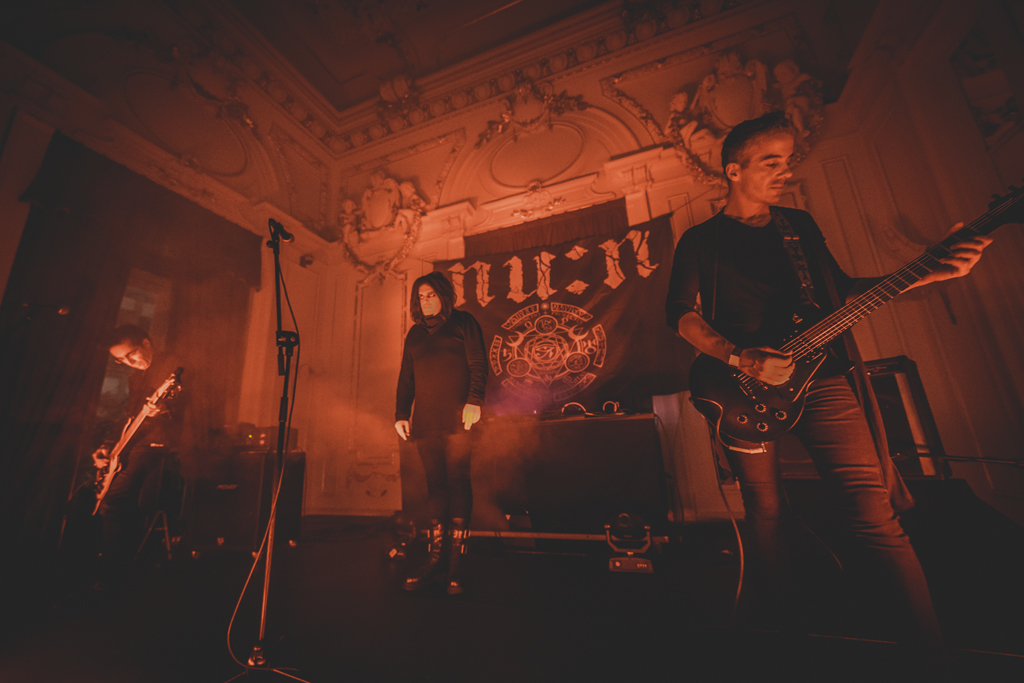
Nick: So the Covid experience has changed the way that you do things now?
Pedro: The first post-Covid show we did last month in Barracuda Club, in Porto, was important for us, and we ended up being really powerful on stage just like how we were playing before lockdown. Our attitude was “lockdown is over so let’s got for it!” But in fact I was really apprehensive about doing that gig – and I’ve never got nervous in my life… [laughs] Obviously it can happen.
Nick: As a band how does it work out in terms of writing material?
Tarannis: We always write about our personal experiences. For me the lyrics are important – I write the lyrics and Francisco writes some too. We write in English usually, but on the next album we’ll try to record more songs in Portuguese. Of course English as a language dominates rock and so many other kinds of music but of course we love our language too.
Francisco: Portuguese can be seen as a difficult language to put into music because people think it sounds too ‘heavy’. But we actually think that’s a good thing and we’re working on fitting Portuguese words to some of our songs because it really can make the music sound heavier. We’d love to see Portuguese out there in the way that Rammstein have put German all over the world.
Pedro: In terms of themes, we have a lot of them in our songs, often very different.
Tarannis: When we first started off, our inspiration was mostly based on our own individual views. But now we’re moving away from that sort of focus and we’re connecting with themes that reflect our experience of the wider world, with a more universal connection.
Francisco: You can also find a sense of humour in a few of our lyrics – although people might always get it. [laughs] Perhaps we’re not just a dark rock band but a dark humorous one too.
Nick: If you go to an international goth festival, say in Germany, do you feel that you share an identity with the other bands? Or do you feel that you project being a very Portuguese band?
Pedro: I wouldn’t say Portuguese, what I would say is that we feel different. And that’s because each of us has so many influences. A lot of the other goth bands always seems to have the same sound, the same production, they sound like they’re all produced in the same factory.
Tarannis: It’s not all bands of course, and I think NU:N definitely has a unity and an identity – three different minds that are converging in the same direction.
Pedro: Part of that attitude comes from the fact that a lot of bands today don’t want to risk doing different stuff
Francisco: But there’s also the factor that Covid has pushed everyone over the edge and we’re all still facing the consequences, so that’s understandable.
Tarannis: We’re always aware of that, and now that we’re able to return to playing live, we really appreciate an invitation like travelling over to Morecambe to play in a festival like Bats in the Attic.
Nick: So tell me about those 26 songs. It sounds like there’s a triple album in the making?
All: [in unison] No!
Tarannis: However… it is part of a trilogy, part of the experiment of all our albums, which are different but connected, starting with Nothing Unveils Nothing [2015] then Naked Until Noema [2016]. So the third will be announced soon.
Pedro: For us, creating a trilogy of albums this way is an idea that works like a physical sigill.
Nick: Its meaning being…?
Francisco: A secret meaning at the moment…
— NU:N Bandcamp: nu-n.bandcamp.com
— Corrosion Facebook: @morecambegoths
— McGothicfox Promotions Facebook: @McGothicfox

